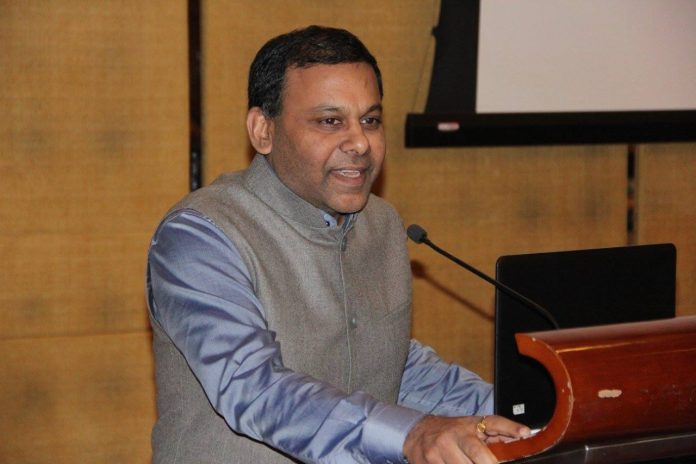NEP’s commitment to modernizing education and offering students greater flexibility is a good step in the right direction as India strives to catch up with developed economies. Here are three reasons why NEP heralds a new dawn for Indian higher education if implemented correctly:
- Multi-Disciplinary Education
Under guidelines provided by UGC, Indian students can now pursue two degrees simultaneously in physical, distance learning, or online formats. Additionally, undergraduate degrees can now last up to four years. “These provisions under NEP 2020 give students the flexibility to pursue different streams or courses helping them develop into individuals with both breadth and depth in their education. It is a welcome change in India’s higher education system and will help fulfill the vision of promoting multidisciplinary education”, said Vineet Gupta, co-founder of Jamboree and Founder of Ashoka and Plaksha University.
“At Ashoka University, we were perhaps one of the first in 2014 to set up a unique program that delivers on both breadth and depth at the undergraduate level and provides an interdisciplinary and multi-disciplinary education. Students are offered a 3+1-year program, in which, they do a set of foundation courses typically in their first year in different disciplines such as Economics, History, Literature, Mathematics, Philosophy, etc., and then towards the beginning of the second year, they pick a major in the discipline of their choice.”
Foundation courses not only provide students with a broad-based education but also help them determine which discipline they would like to study. The UGC at that time did not allow students to pursue a four-year undergraduate degree, so students at Ashoka can graduate in 3 years or stay on an extra year to study more courses in their chosen major or add a broader spectrum of disciplines. Students could also pursue a double major. At Plaksha University, we offer 4-year engineering degrees that build solid foundations in Mathematics, Computing, Design and Basic Sciences.
At the beginning of the fourth semester, students choose the engineering discipline they want to pursue. The focus is also to develop creativity, critical thinking and communication through course work that is weaved in through the four years. I have always advocated for the need of FYUP in India’s higher education ecosystem and it feels great that our stand has been vindicated by NEP 2020”, adds Vineet Gupta.
1. Why a multidisciplinary approach is important?
- Many 18-year old students come to college without knowing what degree they want to pursue. The most common questing I get asked by 11th or 12th graders is “What subject should I study? My reply most often is ‘whatever you would like to study’”, says Vineet Gupta Ashoka University founder. Right now, students have no choice but to pick a particular branch of study and stick to it for the entire duration of their degree. A multidisciplinary approach gives them the opportunity to find their true calling and choose accordingly.
- Undergraduate degrees should be both broad and deep. In the real world, graduates need more than just a deep knowledge of their own discipline. It is not enough to know one discipline in depth to be a good citizen of the world and do well in your chosen profession.
- During a four-year program, students are exposed to a variety of disciplines within the Humanities, Social Sciences and Sciences, but they also gain additional knowledge through professional and technical courses that will help them prepare for the challenges that may arise in their careers in the future.
2. Academic Bank of Credits
Using the Academic Bank of Credits, students can save credits and transfer them to other universities midway through their courses. With the Multiple Exit-Entry Scheme (MEES), students are not only able to transfer midway through their courses to a new institution, but also pursue semesters abroad. Additionally, it allows students who have to drop out due to unforeseen circumstances to resume their studies later.
“There are a large number of students who wish to transfer to other colleges or would like to take a gap year. Unfortunately, our system did not allow this in the past unless a student was willing to repeat their entire degree. The NEP 2020 has made this possible,” says Vineet Gupta Ashoka University founder.
3. Focus on research and creation of NRF
“India has a gross enrollment ratio of 26% while most of the developed countries have a GER of over 70%. To get to a GER of over 50%, private higher education and Ed-tech will play a critical role. Private higher education already has a 60% share in Indian higher ed. While education especially in the private sector is largely funded by parents and families, research has to be funded by the government. The creation of a National Research Foundation is a step in the right direction,” Vineet Gupta adds.
Unless we have a robust research ecosystem, we are limited in our ability to innovate. There is a strong correlation between a country’s research spending and its innovation index. While Indian universities educate a large population, their research output is mediocre when compared to top universities in the world. It is for this reason that Indian universities don’t perform well in world university rankings. One of the main reasons for this shortcoming is a lack of research funding.
However, despite all the radical changes NEP 2020 is likely to bring, the scheme has found its fair share of critics.
- Some academics are of the opinion that while it is great to have an academic bank of credits and MEES, there have been no clear guidelines yet on how these would be applied, thus leading to confusion among both students and institutions.
- Many critics believe that FYUP does not add enough value in many institutions to justify students spending additional time and money
- Despite exit points midway through courses helping dropouts earn diplomas instead of having nothing to show for their efforts earlier, the credentials of such a diploma are questionable. Families can also use this as an excuse to withdraw their children midway through courses, especially when it comes to women.
- In spite of the NEP 2020 being introduced to match some western counterparts, some claim the issues facing our system are different from those abroad.
Every radical change will have its fair share of supporters and critics and that is a part and parcel of how things work in a democracy. “No policy when introduced is perfect, but I believe that with time and with feedback from the student community, teachers, and key stakeholders, amendments can be made to the policy to ensure a more robust and inclusive educational ecosystem”, concluded Vineet Gupta, Founder of Ashoka and Plaksha University.
🔥228












